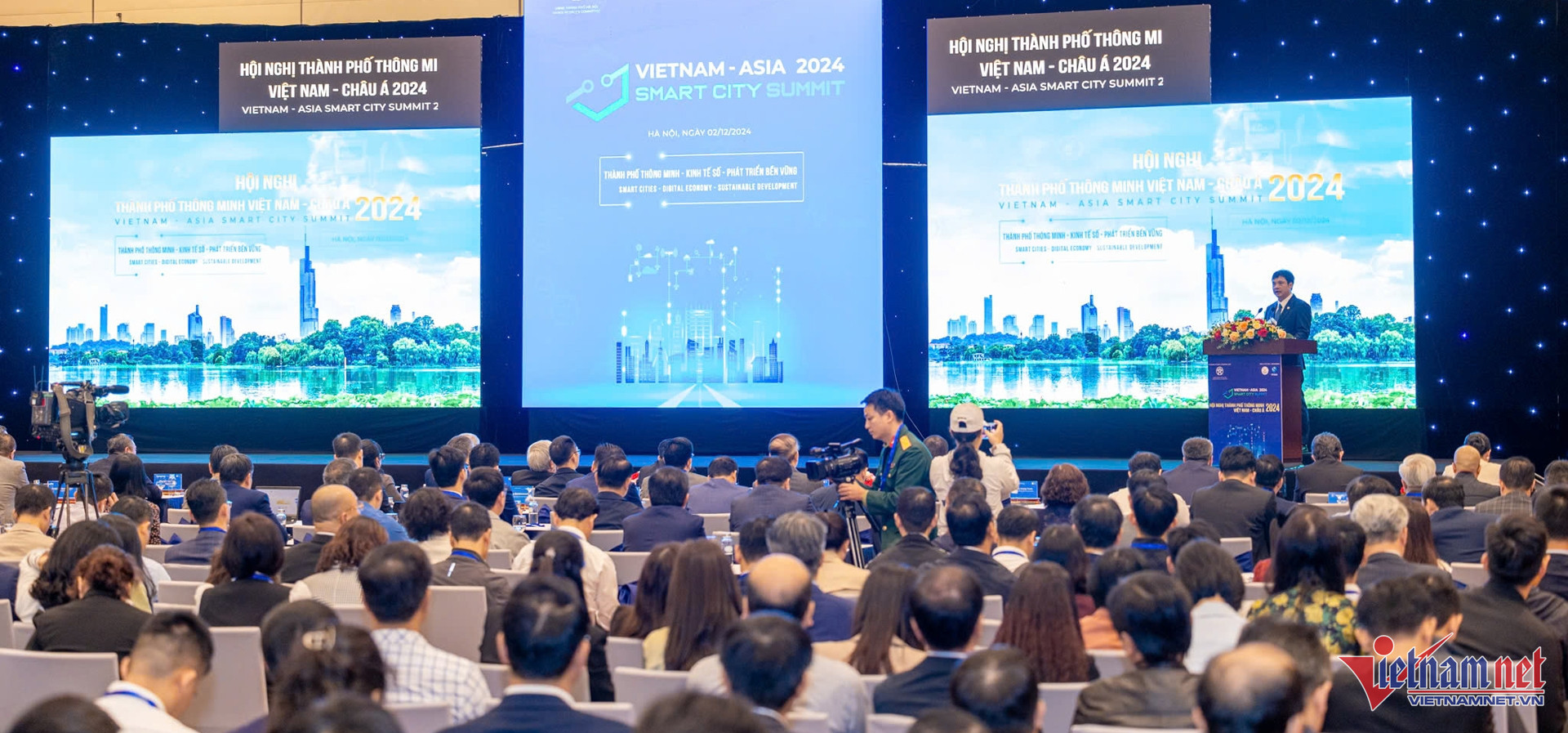
The Vietnam Software and IT Services Association (VINASA) and the Hanoi Department of Information and Communications on December 2 held the Vietnam-Asia 2024 Smart City Conference with the theme "Smart Urban Areas - Digital Economy - Sustainable Development".
According to VINASA chair Nguyen Van Khoa, as of the end of 2023, Vietnam had 902 urban areas with the urbanization rate of 42.7 percent and urban economies making up 70 percent of the country’s GDP.
"The challenge for us is to find new driving forces and resources for growth in the context of politics, economy, and technology instabilization. We believe that the digital economy, green economy, and new technology could be the answer," Khoa stated.
Discussing the current status of smart urban development across the country, Tran Ngoc Linh from the Urban Development Department under the Ministry of Construction (MOC), noted that 48 out of 63 centrally administered provinces and cities have either implemented or are in the process of implementing smart city development plans.
In addition to implementing these plans at provincial level, some localities have directed dependent cities to pilot smart urban development before deploying the model at the provincial level.
Regarding smart urban planning, many localities have begun focusing on building platforms for smart planning, starting with urban database platforms and geographic information systems (GIS) for smart planning and management. Currently, 43 cities and towns are implementing this.
Meanwhile, 57 localities are concentrating on providing smart services and utilities to citizens, mostly in the fields of transportation, via smart healthcare, smart education, and the development of warning applications.
Officials from the Urban Development Department pointed out the challenges in developing smart cities in Vietnam, including inadequate promotion of smart urban planning and management; lack of legal framework; and insufficient resource mechanisms for smart urban development. Particularly, because of the lack of connections with the private sector, it is still difficult to mobilize resources from society.
Trung from RMIT Vietnam, which has conducted research on sustainable smart cities in APAC, said smart and sustainable cities are entering the third phase of development, with active engagement of society, rather than solely relying on governments or technology solutions.
The research team has called on to build a flexible policy framework to integrate new technology, increase resilience against climate change, and develop smart governance.
He stressed that regional cooperation and experience sharing among cities are prerequisites for optimizing resources and establishing a sustainable foundation.
Van Anh